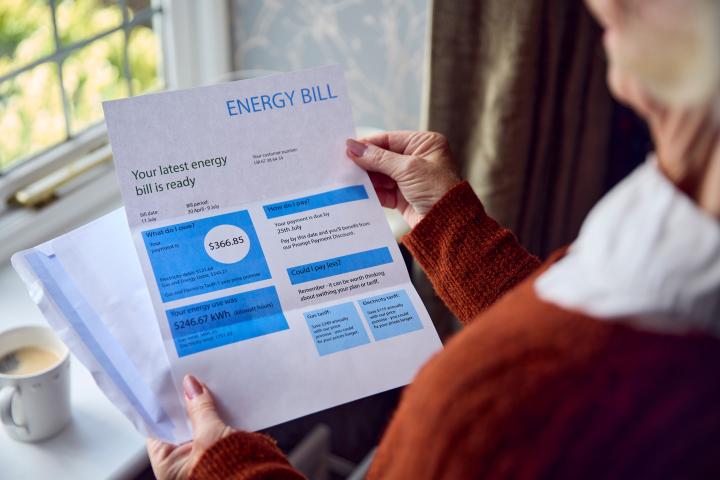Let's talk about something that makes everyone in the Triad area cringe: opening that monthly energy bill. You know the feeling—you peek at the number, do a double-take, and wonder if Duke Energy accidentally charged you for powering the entire neighborhood. Spoiler alert: they didn't. But the good news? Your sky-high energy bills aren't some unavoidable curse. There are real, fixable reasons why you're hemorrhaging money every month.
After years of crawling through Greensboro attics and investigating Winston-Salem crawl spaces (it's a glamorous life, really), we've identified the usual suspects that turn your home into an energy-guzzling monster. Let's dive into the seven biggest culprits—and more importantly, how to fix them.
1. Your Attic Insulation Is Playing Hide and Seek
Here's a fun fact: if your home was built before 1990, there's a decent chance your attic insulation is about as effective as a screen door on a submarine. North Carolina building codes have evolved over the years, and what passed for "adequate" insulation in 1975 wouldn't cut it today.
The recommended R-value for attics in our Climate Zone 4 ranges from R-30 to R-60. If you can see your ceiling joists when you peek into your attic, congratulations—you've just discovered why your HVAC system runs 24/7 like it's training for a marathon.
The Fix: Adding proper attic insulation is one of the smartest investments you can make. And here's the kicker: thanks to the new Energy Saver North Carolina program that launched in January 2025, you could get up to $1,600 in rebates for insulation upgrades. Duke Energy is also offering up to $700 in additional rebates for NC homeowners. That's real money back in your pocket for doing something that'll save you money every single month.
2. Air Leaks Are Throwing a Party (And You're Paying for It)
Imagine leaving your front door wide open while running your air conditioning. Sounds ridiculous, right? Well, that's essentially what's happening when your home has air leaks around windows, doors, outlets, and penetrations in your walls and ceiling.
These sneaky gaps might seem insignificant individually, but collectively, they can add up to leaving a window open year-round. Your expensive heated or cooled air is escaping faster than teenagers when you ask them to help with yard work.
The Fix: Air sealing is the unsung hero of energy efficiency. Weather stripping around doors and windows is a good DIY start, but the real action happens in your attic and crawl space. Professional air sealing targets the major leak points you can't see—and yes, it also qualifies for those Energy Saver NC rebates we mentioned.
3. Your Attic Is Basically a Sauna (Or an Igloo)
During a North Carolina summer, your attic can reach temperatures of 130-150°F. That's hot enough to bake cookies up there—not that we recommend it. All that heat radiates down through your ceiling, making your air conditioner work overtime trying to keep your living space comfortable.
In winter, it's the opposite problem. Heat rises (thanks, physics), and if your attic isn't properly insulated, that warmth you're paying for is just floating up and away like a balloon at a kid's birthday party.
The Fix: This is where radiant barriers become your best friend. A radiant barrier reflects heat away during summer and helps retain it during winter. Combined with proper insulation, it's like giving your home a thermal superpower. We've seen Greensboro families cut their cooling costs by 20-30% after installing radiant barriers.
4. Your HVAC System Is Older Than Your Teenager
HVAC systems don't age like fine wine—they age like milk. If your system is 15+ years old, it's probably working about as efficiently as a coal-fired steam engine. Modern systems are significantly more efficient, but here's the thing: even a brand-new HVAC system will struggle if your home isn't properly insulated.
Think of it this way: buying a new HVAC system for a poorly insulated home is like buying a Ferrari and then driving it with the parking brake on. Sure, it's a nice car, but you're not getting what you paid for.
The Fix: Before you drop $8,000-$15,000 on a new HVAC system, invest in insulation first. You might find that your existing system works just fine once your home can actually hold the conditioned air. If you do need a new system, proper insulation means you can potentially downsize to a smaller (read: less expensive) unit that'll run more efficiently.
5. Your Crawl Space Is a Moisture Nightmare
Let's get real about crawl spaces for a minute. If you've got a vented crawl space under your home (which most older Triad-area homes do), there's a good chance it's working against you. During our humid summers, that "ventilation" is actually pulling in moisture-laden air that can make your floors feel clammy and force your AC to work harder to dehumidify your home.
Plus, wet insulation is about as useful as a chocolate teapot. Moisture reduces insulation's R-value dramatically, and you might as well not have it at all.
The Fix: Modern building science actually recommends encapsulating crawl spaces rather than venting them. An encapsulated crawl space with proper moisture barriers can dramatically improve your home's energy efficiency and indoor air quality. Bonus: it also keeps the creepy crawlies to a minimum.
6. Your Ductwork Is Leaking Like a Sieve
Here's a depressing statistic: the average home loses 20-30% of conditioned air through duct leaks. That means for every dollar you spend on heating and cooling, 20-30 cents is literally going into your attic, crawl space, or wall cavities where nobody benefits from it.
Those gaps, holes, and disconnected sections in your ductwork are like having holes in your wallet. The money just falls right out.
The Fix: Professional duct sealing can make a huge difference. And no, we're not talking about slapping some duct tape on it (fun fact: duct tape is terrible for ducts). Professional mastic sealant or Aeroseal technology can plug those leaks and get your system running at peak efficiency.
7. You're Being Penny-Wise and Pound-Foolish
We get it—nobody wants to spend money on home improvements they can't see. New kitchen cabinets? Sure! Granite countertops? Absolutely! Attic insulation? Well... that's not as exciting for dinner party conversations.
But here's the truth bomb: poor insulation and air sealing can cost you thousands of dollars over the years. Meanwhile, you're setting your thermostat higher in summer and lower in winter, wearing sweaters indoors, and generally being uncomfortable in your own home to save a few bucks. That's not living—that's surviving.
The Fix: Invest in your home's energy efficiency. With the current rebate programs, there's never been a better time. The Energy Saver North Carolina program runs through 2031 (or until funds run out), and these improvements typically pay for themselves in 3-7 years through energy savings. After that? It's all profit in your pocket, month after month.
The Bottom Line: Your Move
Look, we could keep going. We haven't even gotten into programmable thermostats, LED bulbs, or the horror show that is single-pane windows. But these seven issues are the heavy hitters—the ones that'll make the biggest dent in your energy bills.
The beauty of all this? You don't have to tackle everything at once. Start with an energy assessment to identify your home's biggest weaknesses. Maybe your attic insulation is the main culprit. Maybe it's air leaks. Or perhaps you're dealing with multiple issues throwing a synchronized swimming routine of inefficiency.
Whatever the case, fixing these problems isn't just about saving money (though let's be honest, that's pretty great). It's about being comfortable in your own home year-round. It's about not having that one bedroom that's always 10 degrees different from the rest of the house. It's about doing your part for the environment while also doing right by your wallet.
Ready to stop lighting money on fire every month? Give us a call and let's talk about making your High Point, Greensboro, or Winston-Salem home as energy-efficient as possible. We promise we'll make it worth your while—and hey, with those rebates, it's practically a no-brainer.
Your future self (and your bank account) will thank you.


